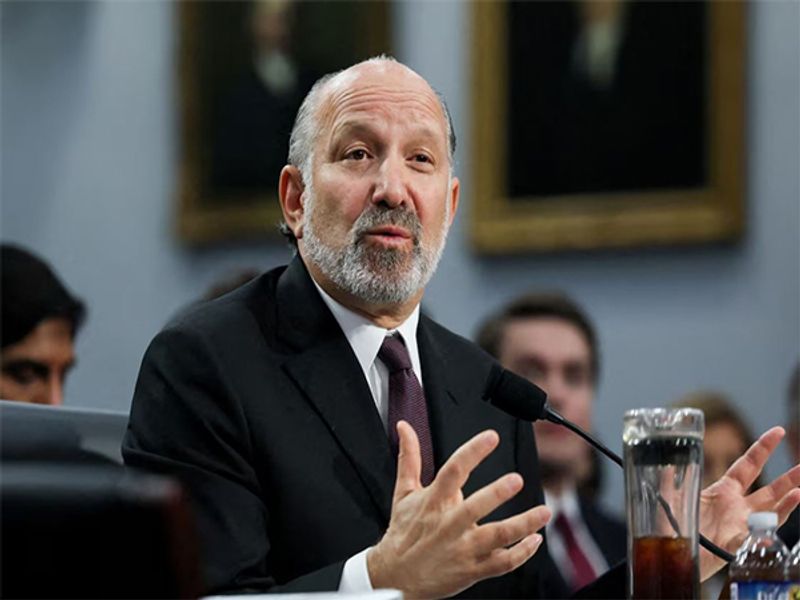
US Commerce Secretary Howard Lutnick has issued a stark warning to India, suggesting that the nation of 1.4 billion people could face a “tough time” doing business with Washington if it does not reduce its tariffs. Lutnick highlighted that despite India’s massive population, it does not import even “one bushel of US corn,” while enjoying access to the American market.
In a candid interview, Lutnick accused India of “taking advantage” of the United States by maintaining high tariffs on American goods, while freely exporting its own products to US consumers. “They sell to us and take advantage of us. They block us from their economy while we are wide open for them to come in… The President says fair and reciprocal trade — bring down your tariffs, treat us the way we treat you,” Lutnick stated.
Trade Imbalance and Tariff Disputes
The US Commerce Secretary’s comments underscore the ongoing friction in trade relations between the two nations. Lutnick criticized India’s “unfair trade practices,” pointing to New Delhi’s refusal to purchase US agricultural products as a prime example of the imbalance. “India brags that they have 1.4 billion people. Why won’t their 1.4 billion people buy one bushel of US corn? Doesn’t that rub you the wrong way? They put tariffs on everything,” he remarked.
India and the US have frequently clashed over agricultural trade, with Washington advocating for greater market access for American dairy and farm products. Meanwhile, New Delhi has cited concerns over protecting its domestic farmers and ensuring food security as reasons for its high tariffs.
Global Trade Tensions and China’s Stance
Meanwhile, China has also been drawn into the broader trade tensions. Chinese Foreign Minister Wang Yi has rejected US calls for G7 nations to impose tariffs on countries purchasing oil from Russia. Wang argued that war cannot solve problems and that “sanctions only complicate them.” He emphasized that “China doesn’t participate in or plan wars, and what China does is to encourage peace talks and promote political settlement of hotspot issues through dialogue.”
These remarks come amidst escalating trade tensions between Washington and its allies, following the US’s imposition of steep tariffs on countries it accuses of maintaining protectionist barriers. Lutnick defended these measures, stating they aim to correct “years of wrongs” and ensure a level playing field for American exporters. “Now we’ve got to right years of wrong. So we want a tariff going the other way until we fix this. That’s the President’s model — and you either accept it or you’re going to have a tough time doing business with the world’s greatest consumer,” Lutnick warned.
Historical Context and Future Implications
The trade tensions between India and the US are not new. Historically, both countries have had a complex trade relationship, often marked by disputes over tariffs and market access. The current situation reflects a broader trend of protectionism that has emerged in global trade, particularly since the onset of the COVID-19 pandemic, which has prompted countries to prioritize domestic industries.
Experts suggest that while the US’s aggressive stance on tariffs may yield short-term gains, it could also lead to long-term repercussions, including strained diplomatic relations and potential retaliatory measures from affected countries. The ongoing negotiations between India and the US will likely focus on finding a middle ground that addresses both nations’ economic concerns while fostering mutual trade benefits.
As the world continues to grapple with economic uncertainties, the resolution of these trade disputes will be crucial for maintaining stable international trade relations. The outcome of these negotiations could set a precedent for how major economies navigate the complex landscape of global trade in the years to come.







